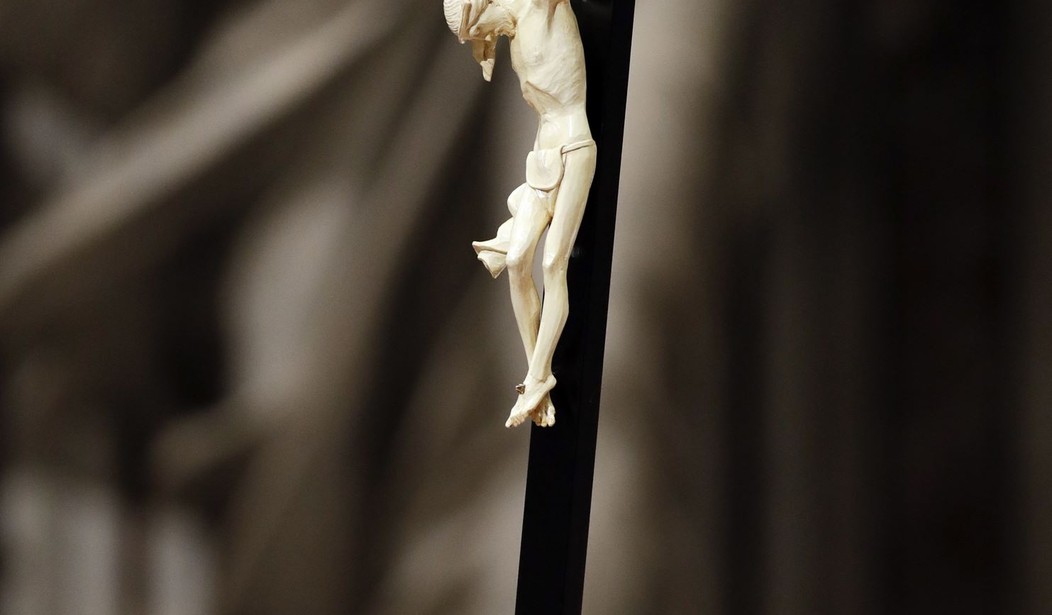Until this year, the first 20 pages of “Witness” by Whittaker Chambers (Random House, 1952) comprised the most brilliant preface or foreword I’d ever read. Chambers, who had crossed over from Communism to Christianity, explained that Communism is “man’s second oldest faith. Its promise was whispered in the first days of the Creation under the Tree of the Knowledge of Good and Evil: ‘Ye shall be as gods.’” And gods play to win, as Chambers goes on to show during the next 788 pages, which are good but not as good as the beginning.
The first 17 pages of historian Tom Holland’s “Dominion: How the Christian Revolution Remade the World” (Basic, 2019) knock the start of “Witness” out of first place. Those pages beautifully tell the amazing story of how a culture that had esteemed only big winners began to care about (in worldly terms) big losers. If the familiar Gospels no longer move you to wonder and perhaps tears, read that preface.
Holland begins with a description of ancient Rome’s most dramatic gentrification project. A ditch just outside the ancient walls was littered with the carcasses of dead slaves. Roman builders cleaned it out and created Rome’s first heated swimming pool. Holland notes, “The marble fittings, the tinkling fountains, the perfumed flower beds: all were raised on the backs of the dead.”
Some of those slaves had suffered the most excruciating, contemptible death Rome could offer: crucifixion. To be hung naked, nailed to a cross, every breath an agony, helpless to beat away buzzards: “such a fate, Roman intellectuals agreed, was the worst imaginable.” But sometimes it seemed necessary, for “luxury and splendor such as Rome could boast were dependent, in the final reckoning, on keeping those who sustained it in their place.” Holland quotes politician/historian Tacitus: “We have slaves drawn from every corner of the world in our households?.? It is only by means of terror that we can hope to coerce such scum.”
Recommended
Crucifixion as a deterrent needed to be public, with victims unavailingly crying for mercy, but “so foul was the carrion-reek of their disgrace that many felt tainted even by viewing a crucifixion.” Romans almost never described this ultimate penalty, but “four detailed accounts of the process by which a man might be sentenced to the cross, and then suffer his punishment, have survived from antiquity.” Remarkably, they all describe the same execution -- that of “a Jew by the name of Jesus?.?..resurrected into a new and glorious form.?.. By enduring the most agonizing fate imaginable, he had conquered death itself.”
Evangelicals understand this. Here’s what we often do not understand: “The utter strangeness of all this, for the vast majority of people in the Roman world, did not lie in the notion that a mortal might become divine.” Romans thought this had happened to Hercules, Romulus, Julius Caesar, and Caesar’s adopted son Augustus. Winners could gain divinity: They were victors because they had the power to torture their enemies, not to be tortured. Holland writes, “That a man who had himself been crucified might be hailed as a god could not help but be seen by people everywhere across the Roman world as scandalous, obscene, grotesque.”
The societies that developed over the centuries, as more people came to worship a loser (by Roman standards), grew a different set of virtues alongside the old Roman ones of military toughness and tenacity. Anselm, a millennium after the wondrous crucifixion, described them as “patience in tribulation, offering the other cheek, praying for one’s enemies, loving those who hate us.”
Holland’s next 600 pages mix brilliance and some questionable judgments, but they continue to depict the power of Christianity in upsetting the powerful. Even those who turn against the theology have usually absorbed some of the fundamental ethic. For example, the Me Too movement did not emerge from churches, but Holland notes that in ancient Rome sexual predation was unquestionably “the perk of a very exclusive subsection of society: powerful men. Zeus, Apollo, Dionysus: All had been habitual rapists.”
Christianity changed all that in theory and sometimes in practice. Even those who hate Christ pay tribute to Him when they care for a few of the least of these -- and, someday, maybe more.

























Join the conversation as a VIP Member